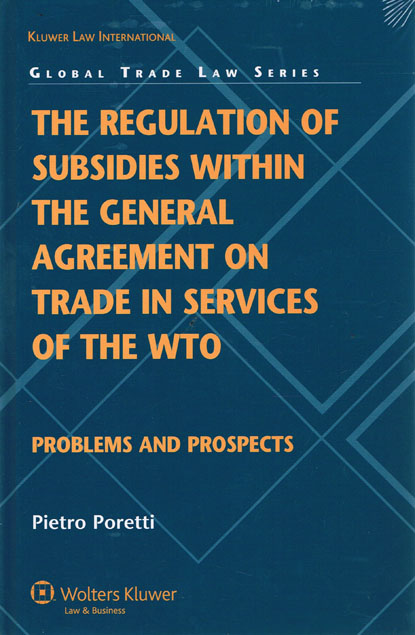
The General Agreement on Trade in Services (GATS) was created to extend the multilateral trading system to the service sector, in the same way the General Agreement on Tariffs and Trade provides for merchandise trade. Little is said in the GATS about subsidies beyond stipulating that a subsidy to a service provider or industry must be in accordance with the most-favored nation and national-treatment principles.
This timely book provides a comprehensive analysis of services subsidies under the GATS. It begins with a description of services and trade in services and of the salient characteristics that make regulation of services subsidies more complex than those associated with agricultural and industrial goods.
It then analyzes the economic arguments underpinning the need for regulation, as well as the need for governments to retain sufficient latitude to implement non-trade related policy measures. A description of the data on services subsidies is followed by a classification of services subsidies according to their distortive effects and by a detailed analysis of those elements that may form a definition of services subsidies for the purpose of a future regulatory framework.
A key section is devoted to the analysis of those existing provisions of the GATS that may exert a certain measure of discipline on services subsidies and to the question of the desirability and technical feasibility of countervailing measures. Rules on services subsidies contained in regional trade agreements are also discussed. Finally, and prior to the conclusion, two sectoral studies deal with the question of subsidies aimed at attracting foreign direct investment and subsidies to the audiovisual sector.
This work represents the first extensive and comprehensive analysis of the issue of services subsidies in the context of the GATS and includes numerous references to relevant European Union State Aid legislation and jurisprudence.